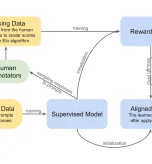As we stride forward in 2025, the landscape of Artificial Intelligence (AI) and Machine Learning (ML) continues to evolve at a breakneck pace. For enthusiasts, professionals and students alike, keeping up with the latest knowledge in these fields is crucial.
Among the plethora of resources, Machine Learning and AI books stand out as both a timeless classic and a beacon for the future. Machine learning (ML) and artificial intelligence (AI) are foundational technologies in today’s technologically evolved and hyper-digital era.
Computers changed the world, but ML and AI are changing computers by equipping them with the ability to process complex information at unprecedented scale and speed. Intelligent, human-like AIs are becoming more common, and we’re not even close to the peak yet.
This is a guide to the best books on ai and machine learning. So, whether you’re an aspiring data scientist or data engineer, want to get into ML and AI, or would simply like to foster an interest in these fascinating subjects, read on!
1: Artificial Intelligence: A Modern Approach” by Stuart Russell and Peter Norvig(4th Edition)
This book isn’t just updated; it’s expansive, covering everything from the foundational principles of AI to the cutting-edge developments as of 2025. With AI becoming more integrated into various sectors, understanding its breadth is key. The latest edition includes insights into the advancements in deep learning, reinforcement learning, and the ethical considerations that have become pivotal in recent years.
Balanced Approach: Russell and Norvig strike a perfect balance between theory and practice, making this text applicable for both academic study and practical application. In 2025, where AI is not just a theoretical pursuit but a practical tool in many industries, this balance is more important than ever.
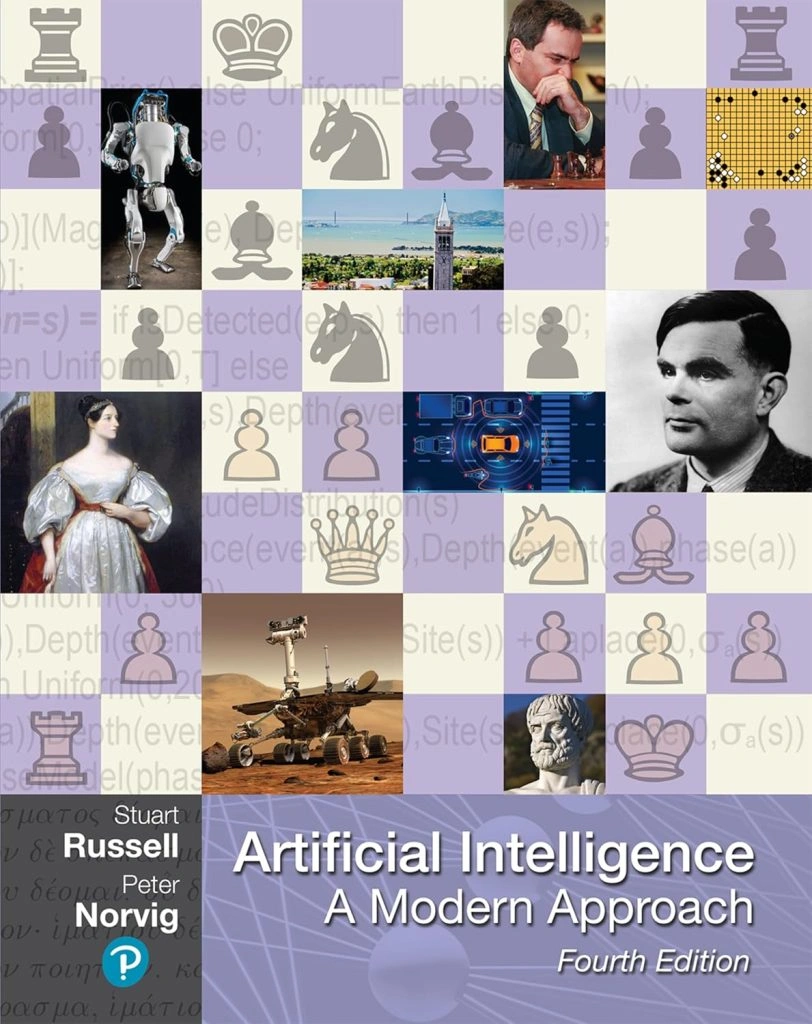
Educational Value: Recognized as the standard text in AI education, this book is used in over 1,400 universities worldwide, reflecting its educational value. For anyone aiming to rank for “top machine learning and AI books 2025,” this book’s widespread use in academic settings ensures its relevance and authority in the field.
Real-World Applications: With AI permeating everyday life, from smart homes to autonomous vehicles, understanding its practical applications is vital. The book discusses real-world implementations, like speech recognition, machine translation, and robotics, which are increasingly ubiquitous in 2025. This practical insight is invaluable for readers looking to apply AI in real-life scenarios.
Also, This book does not shy away from the philosophical questions surrounding AI. As we move forward in 2025, where AI ethics are at the forefront of discussions, Russell and Norvig’s exploration of these themes provides a critical lens for readers to understand the broader implications of AI development.
2: Artificial Intelligence: A Guide for Thinking Humans – Melanie Mitchell
This superb guide to AI and ML provides a pragmatic, fun, and engaging insight into the discipline without weighing readers down with overbearingly technical detail. With that said, the book still covers the core AI algorithms, the past and future of AI, and its primary impacts on life now and life in the future.
The book also contains information on neural networks, computer vision (CV), and natural language processing (NLP) to provide readers with a strong foundational and overarching knowledge of AI.
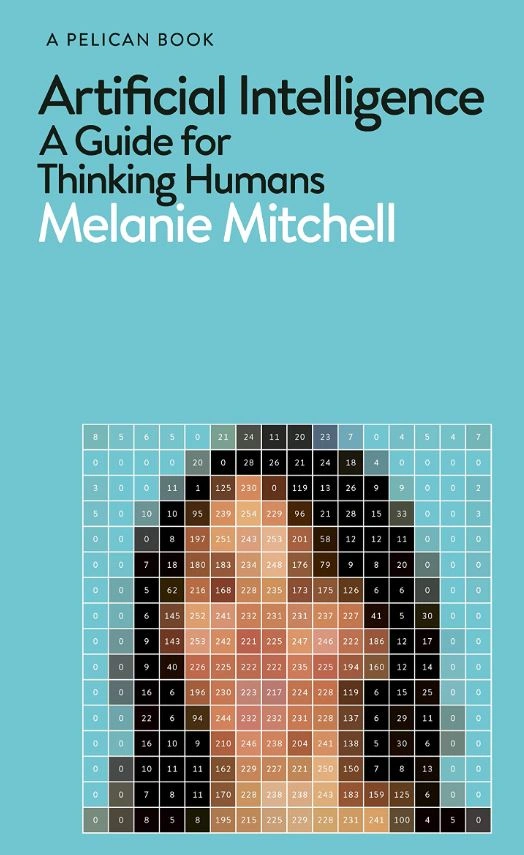
This very well-reviewed book is also inexpensive in paperback form and is a handy length at roughly 336 pages. Written in 2020, this book is certainly up-to-date and draws upon real industry insights to describe the kind of things that are happening right now in AI research.
- Easy to read but packed with good detail
- Excellent overview of AI and ML algorithms
- Numerous industry insights
- Clear, lucid, and well-written for a diverse audience
3: Machine Learning for Dummies – John Paul Mueller & Luca Massaron(2nd Edition)
Machine Learning For Dummies by John Mueller and Luca Massaron is a must-read for anyone interested in understanding machine learning and the future of AI. This book is an invaluable resource for beginners and a great refresher for more advanced learners, making it a top machine learning and AI book of 2025.
Entry-Level Accessibility: With AI and machine learning becoming integral to numerous sectors, this book provides a no-nonsense guide to understanding these complex concepts. Mueller and Massaron have crafted a text that demystifies machine learning, making it accessible to those without a technical background, which is increasingly important as AI permeates everyday life.
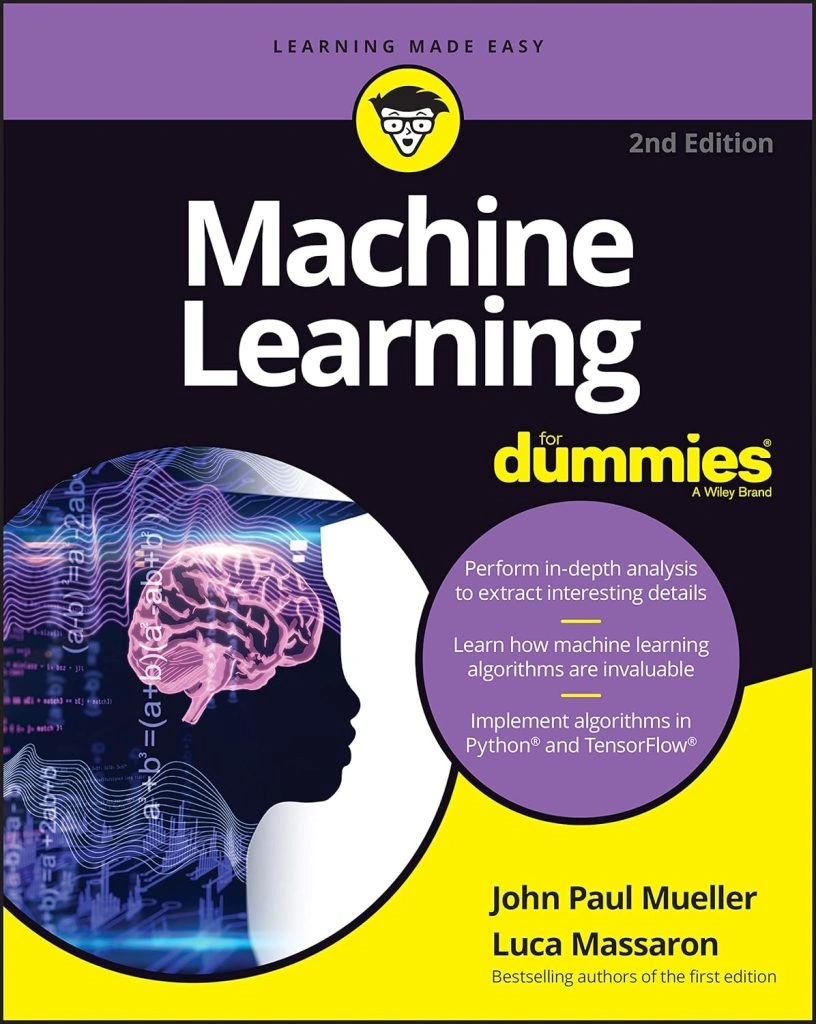
Practical Applications: The book doesn’t just stop at theory; it dives into practical applications of machine learning in areas like fraud detection, optimizing search results, real-time advertising, and credit scoring. These are areas where machine learning’s impact is felt daily in 2025, providing readers with real-world context and relevance.
Engagement with Modern AI: Mark Cuban’s endorsement of this book as one of his top reads for understanding AI highlights its relevance. In 2025, where AI discussions are commonplace, having a book that’s recognized by tech leaders adds to its credibility and appeal.
4: Hands-on Machine Learning with Scikit-Learn, Keras, and TensorFlow” by Aurélien Géron
This practical guide teaches techniques in three of ML’s most important tools: Scikit-Learn, Keras, and TensorFlow. Basic-to-good knowledge of Python is crucial here – Python is the premiere machine learning programming language and forms the basis of many well-known ML tools and libraries.
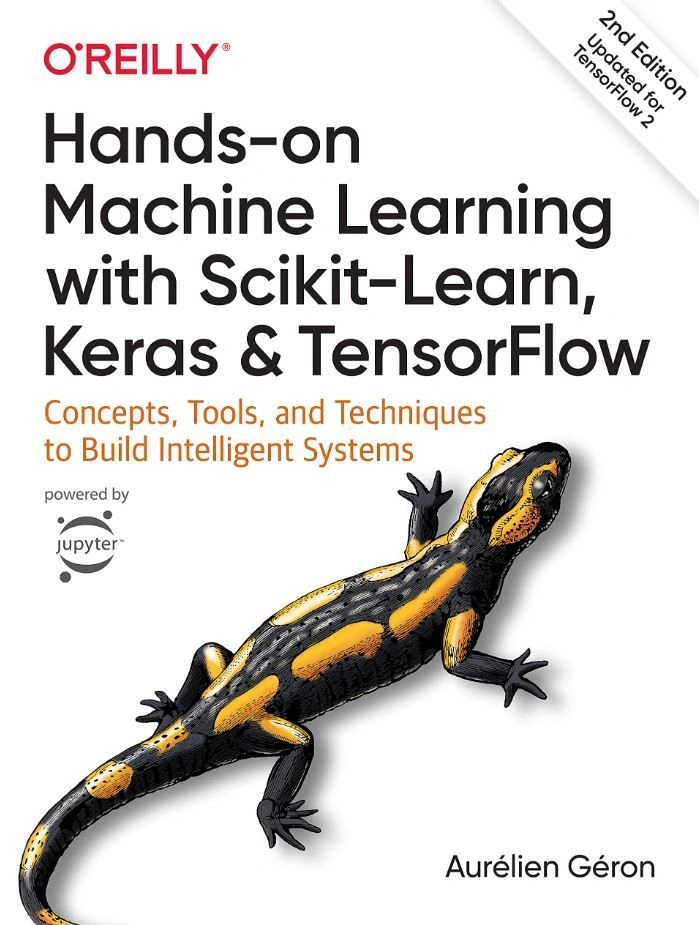
his guide is targeted at those who want to code and build models, including in computer vision and NLP. The book uses practical examples of important AI and ML models that are used every day. It also aims to help readers optimize and deploy their models over the internet.
An excellent book for getting hands-on with code without going through the formalities of learning math and theory.
- A hands-on guide for Python coders
- Doesn’t require high-level coding knowledge
- Aimed at building useful real-world models
- Very clearly written and well-reviewed
5: Advances in Financial Machine Learning – Marcos Lopez de Prado
This well-reviewed, much-respected book is aimed at the economics and finance industry. Specifically, it teaches the application of AI and ML to finance and is ideal for anyone who wants to get involved with modern quantitative finance.
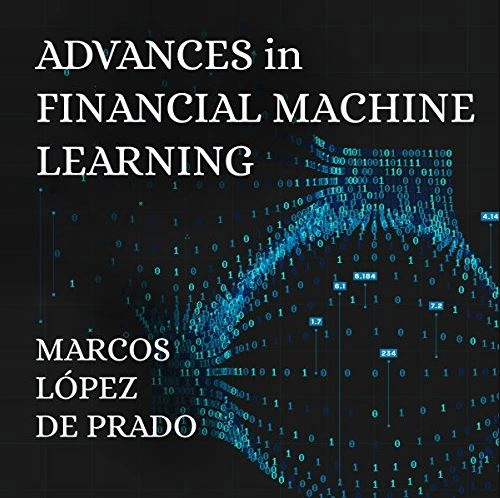
While finance offers the type of high-volume, detailed data that ML demands and thrives upon, there are numerous challenges to processing financial data with ML techniques. This book addresses many of those challenges, ranging from issues with data ingestion to data cleaning, processing, and deploying models.
The author is extremely well-known in his field, and this book has been rated and reviewed by some influential voices across the global finance industry.
- Specifically for the finance industry
- Contains solutions to challenges in using ML in quantitative finance
- Highly-respected author
- A well-reviewed, comprehensive book
6: Deep Learning (Adaptive Computation and Machine Learning Series) – Ian Goodfellow , Yoshua Bengio, Aaron Courville
This book was written by top researchers in the field and was given an appraisal by Elon Musk.
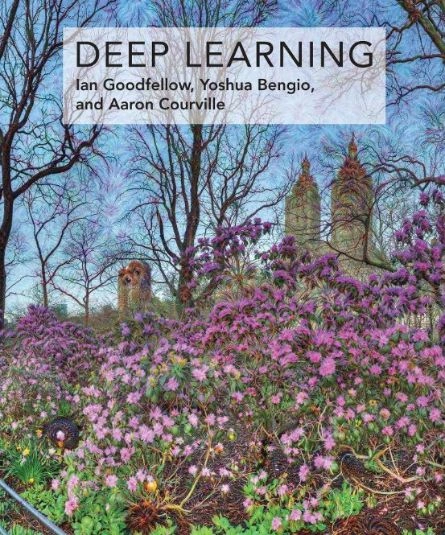
It covers all major topics in deep learning, including tons of theory and historical underpinnings. The book then turns its attention to topics like deep feedforward networks, regularization, optimization algorithms, convolutional networks, and sequence modeling.
Models are described in the context of NLP, CV, bioinformatics, speech recognition, and video gaming. Complex topics are covered, like Monte Carlo modeling and deep generative models.
This is a very large 800-page book that contains huge volumes of detail about modern machine learning. It’s not the simplest introduction to the field, but serves as an excellent go-to for anyone who wants to get seriously involved in AI and ML.
- Long, detailed book by MIT researchers
- Superbly reviewed
- 800 pages
- Covers plenty of complex topics in deep learning
7: Mathematics for Machine Learning – Marc Peter Deisenroth
Mathematics is fundamental in machine learning and will remain so as ML develops into the future.
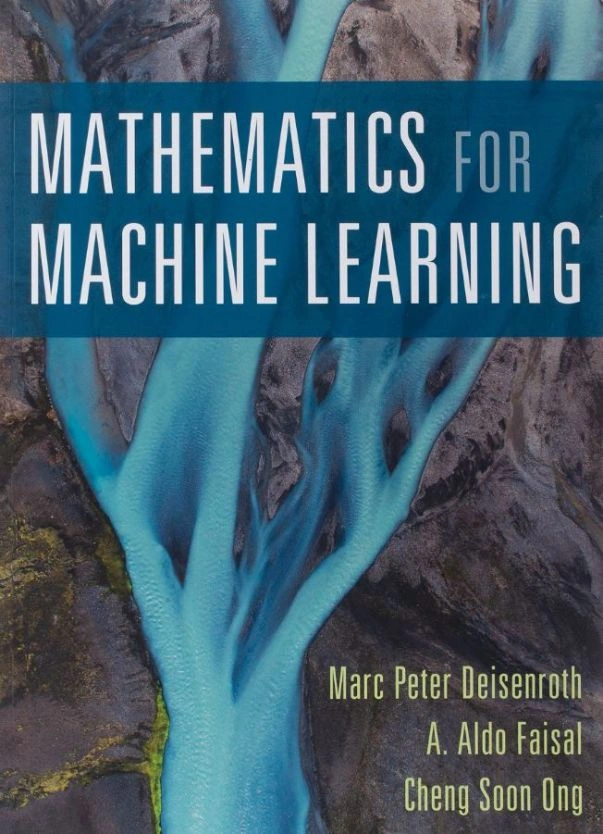
This book seeks to consolidate numerous mathematical ML-related topics and concepts, including algebra, matrix decompositions, vector calculus, analytic geometry, probability, optimization, and statistics. It applies concepts to four fundamental models; linear regression, Gaussian mixture models, principal component analysis, and support vector machines.
This book is an excellent exposition of the math that lies at the center of ML. It’s best suited to those who wish to develop their fundamental knowledge of AI and ML’s mathematical systems.
- Math-oriented book for ML
- Teaches the math fundamental to modern machine learning
- Clear and well-written
- Written by top academics and professionals in the field
8: Approaching (Almost) Any Machine Learning Problem – Abhishek Thakur
This has been described as a ‘rare’ book on ML that cuts through the noise. This book takes a thoroughly code-first approach to teach the reader how to solve ML problems. While transcribing code from a book may not seem ideal, this is a vital part of the learning process.
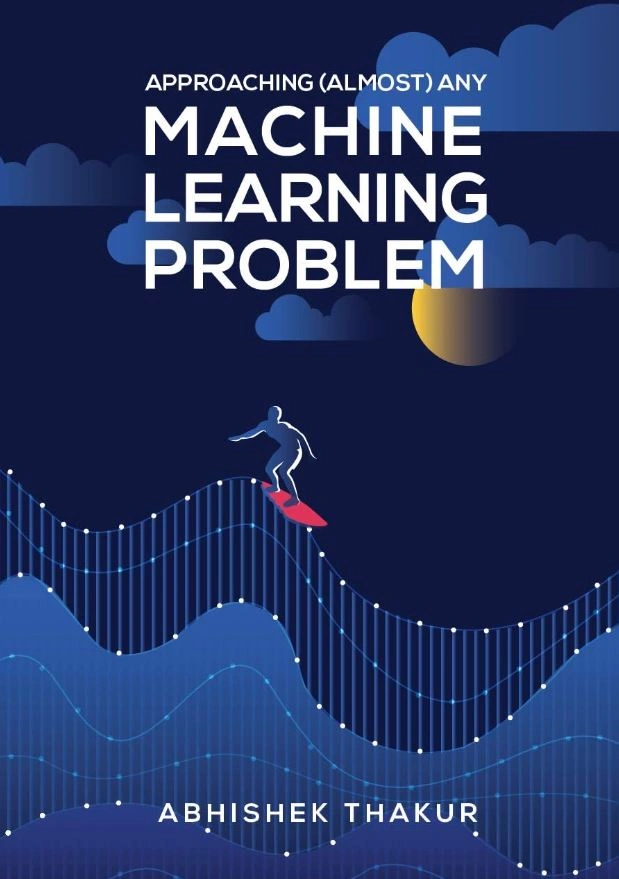
Everything is provided in Python with Python tools and libraries, which is where most ML models are built anyway. Readers must have started some of their own basic projects and will understand key ML tools in Python, like Scikit and PyTorch.
The books cover supervised vs unsupervised learning, feature engineering and feature selection, hyperparameter optimization, image classification and segmentation, text classification, model ensembling, and testing. There are lots of supportive explanations and justifications for decisions.
- Pragmatic and clear code-first book
- Requires Python knowledge
- Covers the start-to-finish process of creating popular ML models
- Very practical
9: Introduction to Machine Learning with Python: A Guide for Data Scientists – Sarah Guido and Andreas C. Mueller
Another Python-focused book that is designed specifically for data science. Covers the entire machine learning workflow, including data preprocessing and cleaning, training algorithms, evaluating results, and deploying models into production.
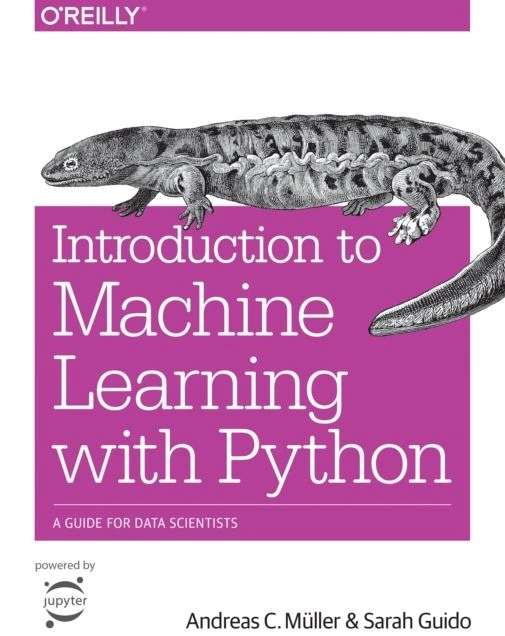
Requires knowledge in Scikit-Learn, but knowledge in NumPy and Matplotlib is useful.
This is your typical O’Reilly machine learning book that takes you through fundamental, intermediate, and advanced concepts logically, clearly, and comprehensively.
- Machine learning for data scientists
- Requires Python and Scikit-Learn knowledge
- Written for modern applications
- Good for business-oriented ML
10: Human Compatible: AI and the Problem of Control – Stuart Russell
This book essentially describes the pros and cons of AI in great detail. It establishes AI’s potential for good but mainly investigates how humanity should exercise caution when training increasingly complex AI systems. This is something Aya Data has explored in relation to bias, crime, and sentience, which all incite controversial debate around the use of complex AI.
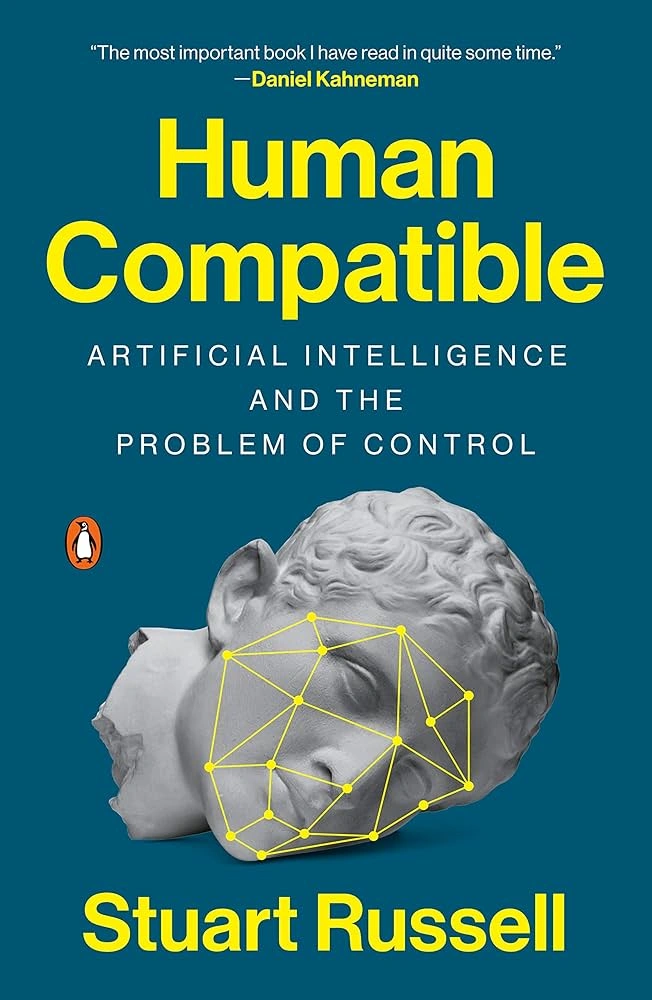
By focusing on humans as the ultimate end user and beneficiary of AI, Russell argues we can remain in control of complex AI – or at least give ourselves the best chance.
- Great book about political and social debates surrounding AI
- Good theory for how we should stay in control of AI
- A warning of contemporary AI-related issues
- Influential author with plenty of experience
Summary: Top 10 Books on Machine Learning and AI
The authors here represent a highly established group of top professionals working in elite companies and influential academic positions. They all have one thing in common: they wrote books for aspiring data scientists, engineers, and ML practitioners.
Some people simply love books and prefer them as a learning medium to other options. To others, exploring AI and ML through the medium books might seem unsatisfactory compared to the internet.
In defense of books, they’re coherent and focused and cover the topics you expect them to cover from cover-to-cover. This builds a strong but continuous understanding. Then, you can bring a book to places you can’t bring a laptop or ereader. Books combine with other forms of learning to help readers gain a more complete understanding of a topic – get stuck in and we’re sure you’ll agree.
Frequently Asked Questions
Which book is best for machine learning for beginners?

Some of the best Machine learning and Ai books for beginners include: Artificial Intelligence-A Modern Approach by Stuart Russell and Peter Norvig(4th Edition), Machine Learning for Dummies – John Paul Mueller & Luca Massaron (2nd Edition) & Human Compatible: AI and the Problem of Control – Stuart Russell.
What is the best AI book?

Here are 4 of the best books on artificial intelligence: Artificial Intelligence: Machine Learning for Dummies -John Paul Mueller & Luca Massaron(2nd Edition) , A Modern Approach by Stuart Russell and Peter Norvig(4th Edition), Artificial Intelligence: A Guide for Thinking Humans -Melanie Mitchell , & Hands-on Machine Learning with Scikit-Learn, Keras & TensorFlow by Aurélien Géron.
What could be the difference between AI and machine learning?

Artificial Intelligence (AI) is the broader concept of machines simulating human intelligence, enabling them to think, reason and make decisions. Machine Learning (ML), a subset of AI, focuses on teaching machines to perform specific tasks by analyzing patterns and improving their accuracy over time. While AI seeks to replicate human cognitive abilities, ML is about enabling machines to learn from data and make predictions or decisions without explicit programming.





